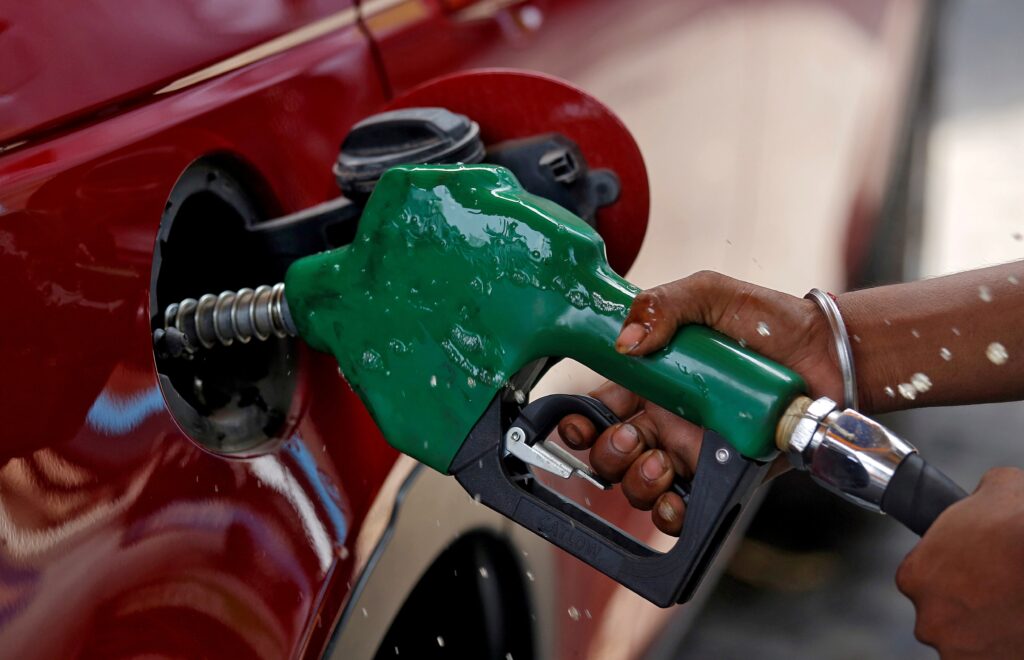The retail price of Premium Motor Spirit, petrol, has increased to between N1030 and N1,150 per litre.
This is sequel to a hike by Dangote Refinery and ex-depot prices of the product.
The price increase sparked different retail price adjustment degrees across filling stations.
The spokesperson of the Independent Petroleum Marketers Association of Nigeria, Chinedu Ukadike, confirmed that the product may sell above N1,100 per litre across members’ filling stations nationwide.
“Commuters will likely pay over N1,150 per litre at faraway locations, while locations close to the depot will pay N1,100. This is because we will add about N50 logistics costs. Currently, ex-depot prices have increased to N980.
“This change is immediate because crude oil price increase, too, is immediate,” he stated.
Meanwhile, Billy Gillis-Harry, president of the Petroleum Products Retail Outlet Owners Association of Nigeria, said although it is too early to project the petrol retail price after Dangote Refinery’s upward price review, the product will certainly cost more.
“Because right now, we still have an obligation with the MRS to be selling at N935, and some of us bought products there. So, if they change their prices because of the Dangote price, then the conversation will be different.
“After the price of buying, there must be the price of logistics. Once that is computed, we can then look at what is the most humane profit margin,” he stated.
Factors Contributing to the Fuel Price Increase:
- Global Crude Oil Prices: The price of crude oil on the international market has a direct impact on the cost of refined petroleum products. As global crude oil prices rise, the cost of importing refined petrol into Nigeria increases.
- Deregulation Policy: Nigeria’s decision to deregulate the petroleum sector means that fuel prices are now determined by market forces rather than being subsidized by the government. This policy aims to reflect global market prices more accurately.
- Exchange Rate Volatility: The fluctuation in the exchange rate between the Nigerian Naira and the US Dollar affects the cost of importing fuel. A weaker Naira means higher costs for imported fuel.
- Lack of Domestic Refining Capacity: Despite being Africa’s largest oil producer, Nigeria lacks sufficient refining capacity to meet its domestic fuel demand. This reliance on imported fuel makes the country vulnerable to international market fluctuations.
Impact on Daily Life:
- Rising Transportation Costs: The increase in fuel prices has led to higher transportation costs, affecting both public and private transport. Commuters are facing higher fares, making travel more expensive and less affordable.
- Increased Cost of Living: Higher fuel prices drive up the cost of goods and services, as transportation costs are passed on to consumers. This has a cascading effect on the prices of everyday essentials, putting additional strain on households.
- Impact on Businesses: Small and medium-sized enterprises (SMEs) are particularly affected, as many rely on petrol-powered generators due to the country’s erratic electricity supply. The spike in fuel costs increases their operational expenses, leading to reduced production, layoffs, or even closures.
- Food Security Concerns: Farmers who depend on fuel for irrigation, processing, and transportation are struggling with the inflated costs. This threatens food security, as higher expenses drive up food prices.
- Economic Slowdown: Persistent fuel price hikes can dampen consumer spending, which is a key driver of Nigeria’s economy. With less disposable income, consumer demand decreases, leading to slower economic growth.
These factors and impacts highlight the significant challenges that Nigerians are facing due to the recent fuel price hike. It’s a complex issue with far-reaching consequences for the economy and daily life.
Get instant and latest news updates via Our WhatsApp Community, X/Twitter or Google News online channel.


